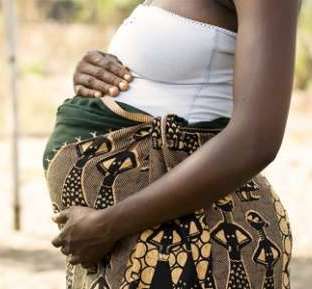Hunger project Ghana Commits €285,000 into maternal health
 The Hunger Project Ghana, in line with its social transformation and leverage principle to improve the living conditions of vulnerable people in rural communities is investing a total of 285,000 Euros in maternal and child health.
The Hunger Project Ghana, in line with its social transformation and leverage principle to improve the living conditions of vulnerable people in rural communities is investing a total of 285,000 Euros in maternal and child health.
Under its Maternal and Child Health Improvement Project with funding from Else Kroner Fresenius Stiftung, capacities of Community Health Nurses in 15 Epicentres of the Hunger project would be upgraded to provide maternal health services and delivery.
The project would also equip the 15 Epicentres located in rural communities in the Eastern, Volta and Central Regions with modern equipment to provide timely and efficient maternal healthcare services to rural dwellers.
Briefing the Ghana News Agency at the opening of a training workshop for Community Nurses and other participants in Koforidua, on Community Infant and Young Child Feeding (IYCF), the Country Director, Mr Samuel Afranie, noted the training was to complement the effort of the Ghana Health Service.
He said in order to provide full access to quality maternal healthcare, the project’s focus was to train the community health nurses to provide the needed services in maternal healthcare and reduce maternal mortalities.
Mr Afranie noted the Hunger Project was in partnership with the Ghana Health Service (GHS) in implementing a “task-sharing’ programme to build the capacities of community health nurses.
The Epicentres are Community Health and Planning Services (CHPS) compounds built by the Hunger Project in rural parts of the country.
It has constructed 60 Epicentres in the country, with 13 in the Eastern region and one each in the Volta and the Central Regions.
The Country Director said the project was focusing on the 15 epicentres in the three regions and expressed the hope that the remaining 45 epicentres would be covered.
Mrs Stephanie Ashley, Coordinator of the Maternal Health and Child Improvement Project, said the IYCF was a component of training community health nurses to enable them to offer comprehensive maternal and child care services in their respective communities.
She said the participants would be trained on how to counsel mothers on the complementary baby feeding, food nutrition, home visits and how to use community monitoring tools to improve on nutrition in communities.
Source: GNA
